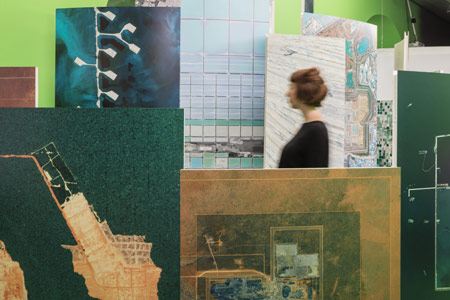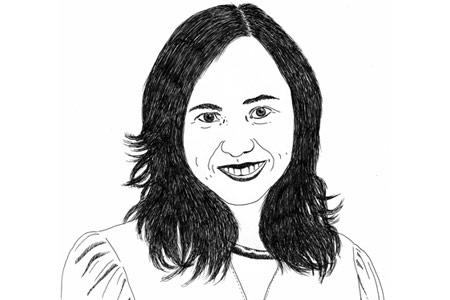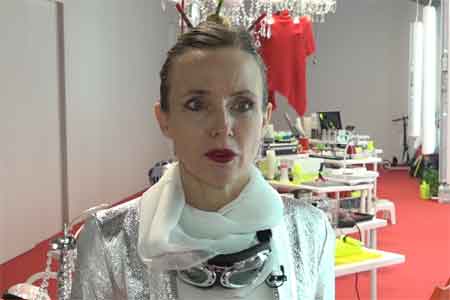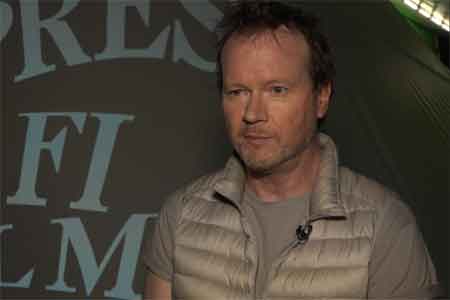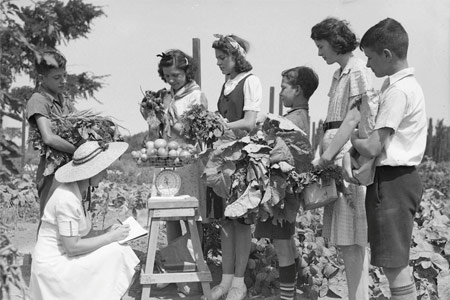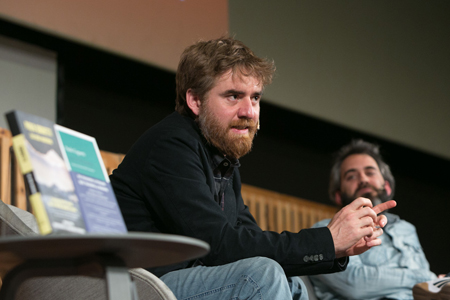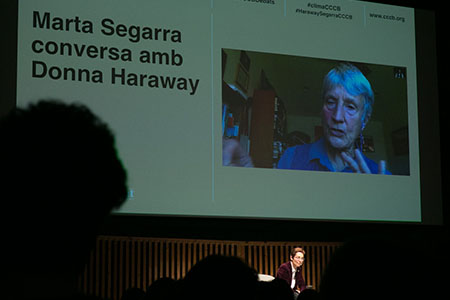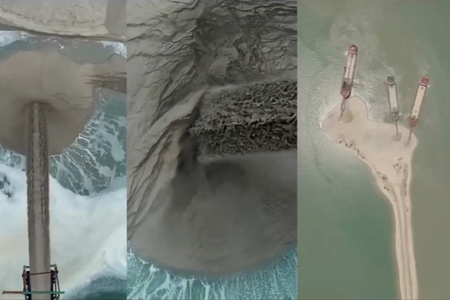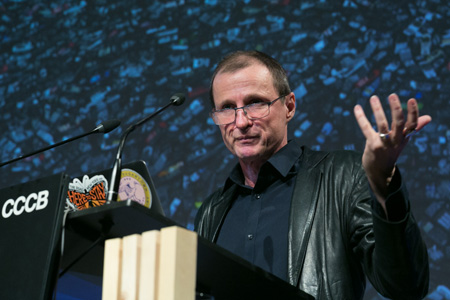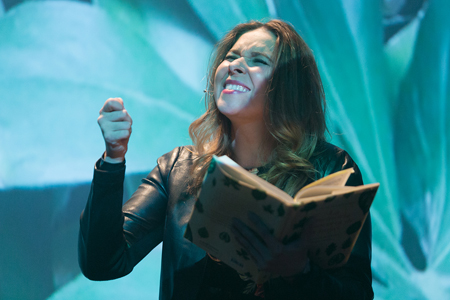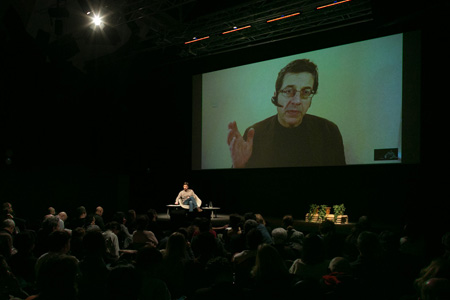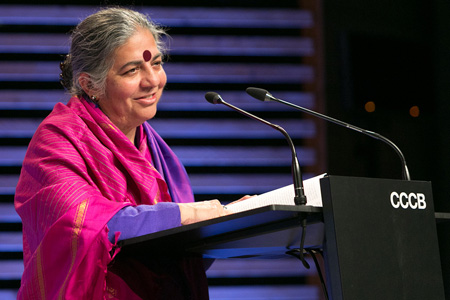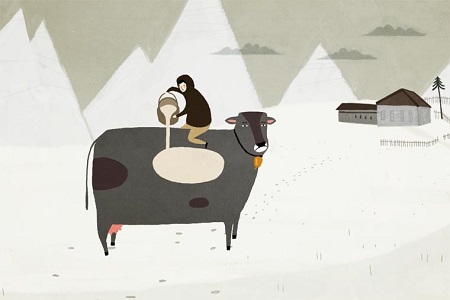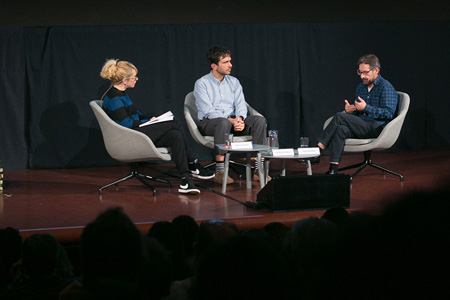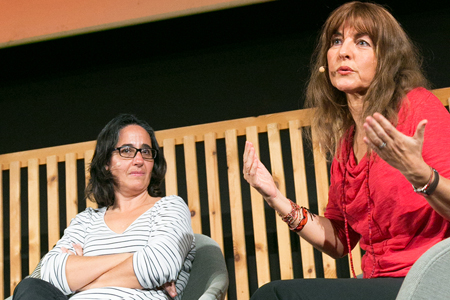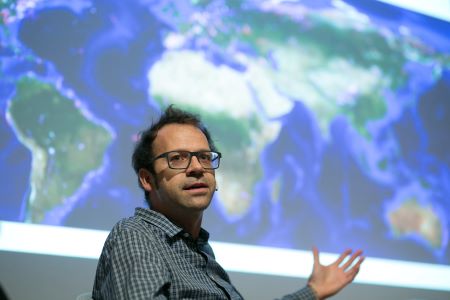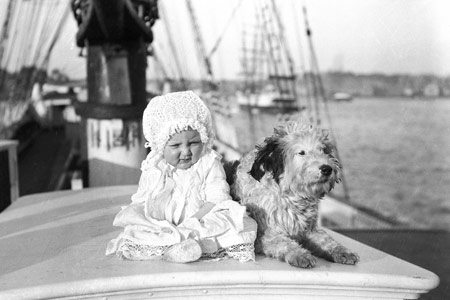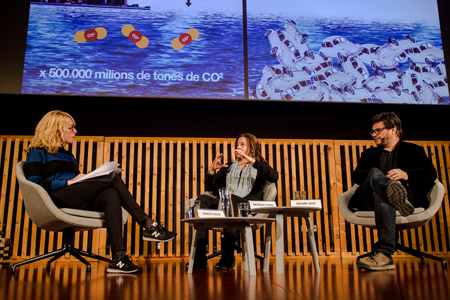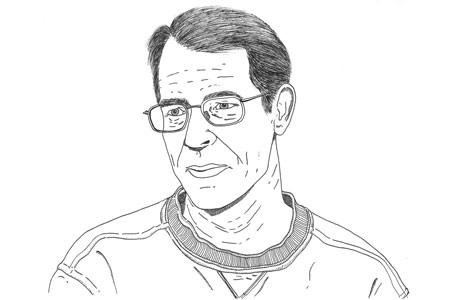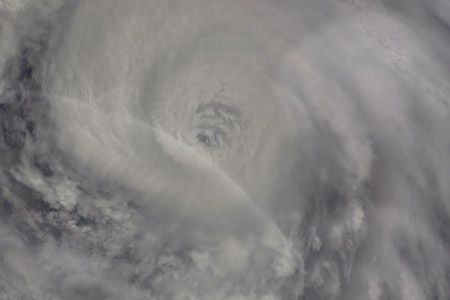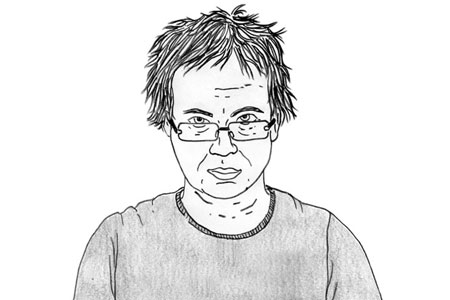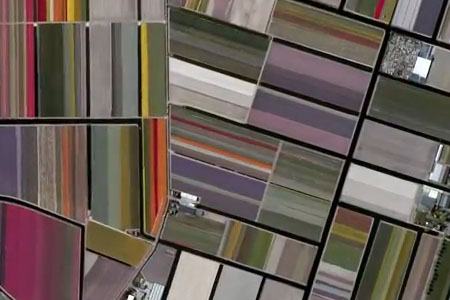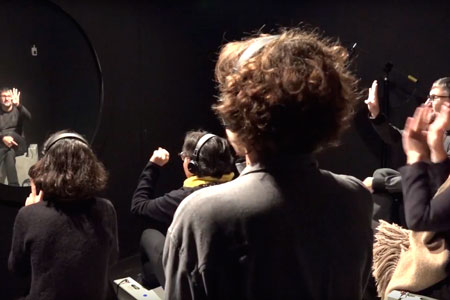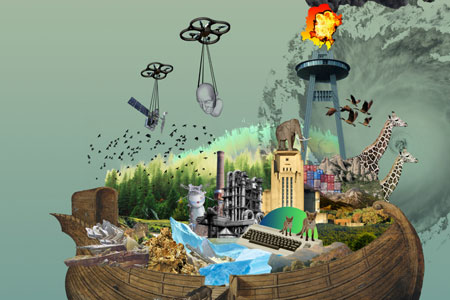After the End of the World
"After the End of the World" is an exhibition about the Earth of 2017 irreversibly transformed into the Anthropocene planet after two centuries of human impact on natural systems. But it is also an exhibition about how we will reach the world of the latter half of the 21st century, and about our society’s responsibility to the generations who will be born and grow up in it
Audiovisual Report «After the End of the World»
After the End of the World is an exhibition about the Earth of 2017 irreversibly transformed into the Anthropoceneplanet after two centuries of human impact on natural systems. But it is also an exhibition about how we will reach the world of the latter half of the 21st century, ...
Joanna Zylinska: “We need a new way of seeing the Anthropocene”
Laura Benítez Valero
An approximation to climate crisis from an ethical and responsible stand at several scales where humans may be the cause but also answerable to solutions.
Natalie Jeremijenko: "We are all creative independent agents"
Interview to the artist and engineer
The artist, engineer and inventor Natalie Jeremijenko has developed this field of mutualistic socio-ecological systems design. Her projects take participation and collaboration between humans and non-humans as their starting point for forging our relationship with nature. Jeremijenko was invited ...
Timothy Morton, Minister of the Future in the exhibition "After The End of the World"
The first Minister of the Future is embodied in the philosopher Timothy Morton, who coined concepts such as the “hyperobject” and “dark ecology”. Morton is one of the world’s foremost thinkers in imagining a new relationship with the planet.
Next Stop: City Station
Núria Jar
The exhibition “After the End of the World” spread out over the city of Barcelona through diverse citizen science actions that aimed to improve the city’s environmental health. Núria Jar, journalist who specialises in science and health, writes about the initatives ...
Paolo Cognetti:
A Place in the World
Paolo Cognetti, author of the book Les vuit muntanyes (Navona, 2018 / Las ocho montañas, Literatura Random House, 2018), awarded with the 2017 Strega Prize, vindicates the recovery of the narrow bond between humanity and nature.
Donna Haraway
A conversation with Marta Segarra
The biologist and philosopher of science Donna Haraway talks with the Professor Marta Segarra on the occasion of the essay Staying with the Trouble: Making Kin in the Chthulucene (DUP, 2016), in which Haraway proposes new ways of reconfiguring the relations of humans with the earth and all its inhabitants.
Sea State 9: Proclamation
Interview with Charles Lim Yi Yong
Singapore is a key port in the world’s infrastructure and a central node in the international financial system. The country’s most limited resource is land, which it is attempting to increase by terraforming, reclaiming land from the sea. Thirty per cent of its surface is now artificial ...
McKenzie Wark
The Drunken Driver: Thoughts on a Waning Civilisation
McKenzie Wark, Professor of Media and Cultural Studies, discuss the role of climate change in the present Anthropocene Era. Wark points out that perhaps this is not as rational a world as its owners would like us to think. What if the corporate-robotic-information complex that is seeking power o...
La costilla de Rocío
An action-concert by Rocío Márquez and Manuel León
The award-winning cantaora and student of flamenco traditions Rocío Márquez takes the stage like a magician to reveal the voice of the Anthropocene in an action-concert that the CCCB presents as part of the exhibition “After the end of the world”.
Anaib Jain and Jon Ardem: "How do you imagine your house in 2050?"
Interview with the fiction desgin studio Superflux
The fiction design studio Superflux (IN/UK) transports us to an apartment in London in the year 2050, a time when droughts and hurricanes have altered our dietary routine. Superflux create worlds, stories, and tools that provoke and inspire us to engage with the precarity of our rapidly changing ...
Vandana Shiva
Seeding Freedom: Humanity at an Evolutionary Crossroads
Vandana Shiva, activist and ecofeminist thinker talks about the role humanity must accept in a future conditioned by the ecological, economic, political and social effects of the present climate crisis. Vandana Shiva argues that today’s climate crisis faces humanity with a serious situation ...
Living the Earth
Animated Films and Ecology
Programme of animation film organised alongside the exhibition After the End of the World, offering highly personal views and concerns of the world, present and future, through the work of artists such as Catya Plate, Réka Bucsi and Steve Cutts.From December 28th, 2017 until January 4, 2018.
Frederic Bartumeus, Xavier Rodó and Mercè Folch
New clima, new diseases?
ICREA research professors, Frederic Bartumeus (CEAB-CSIC) and Xavier Rodó (ISGlobal) and journalist Mercè Folch, discuss the role of climate change in the emergence and expansion of infectious diseases. Indeed, the experts warn us that climate change could pose the greatest threat ...
Minister of the Future
Timothy Morton
Timothy Morton represents the heirs of the planet, human and non-human, whose existence will be determined by what we do and how we think from now on.
Ricard Solé and Patrizia Ziveri
Reinhabiting the Earth
CREA researchers, Ricard Solé (UPF) and Patrizia Ziveri (ICTA-UAB), discuss the challenges facing science to preserve the stability of ecosystems threatened by climate change. Science fiction has often explored these apocalyptic scenarios by raising the possibility of creating new, ...
Angry Optimism in a Drowned World: A Conversation with Kim Stanley Robinson
José Luis de Vicente
Reflections from a science-fiction angle on the scenarios posed by climate change and the defence of the imagination to help find real solutions.
Kim Stanley Robinson: «Think of Yourself as a Planet»
Prologue of the exhibition «After the End of the World»
The science fiction writer Kim Stanley Robinson made the script and put the voice to this audiovisual piece that opened the CCCB exhibition After the end of the world (2017). The video worked as a prologue of the exhibition and raises a reflection on the relationship and responsibility ...
Timothy Morton: Ecology without Nature
Roc Jiménez de Cisneros
We interview the philosopher Tim Morton, author of “Dark Ecology”, who proposes that we rethink the way we see ecology, anthropocentrism and art.
Benjamin Grant talks about the 'Overview' effect
Seven hundred kilometres above our heads, satellites capture in detail the Earth’s new skin, cracked and tattooed across its entire extent. From up there, we can see the catalogue of all the objects of the world. Benjamin Grant is the founder of Overview, a publishing and online project ...
Win-Win: an immersive installation on climate change
The German documentary theatre company Rimini Protokoll presents a dramatic experience about the animal species that will be the winners and losers in the climate crisis. A surprising experience for the visitors of the exhibition "After The End of the World". Until May 1 2018 at CCCB.
After the End of the World
An exhibition about the present and the future of the climate crisis
The exhibition "After the end of the world" tackles one of the most complex challenges in the history of humanity: the present and future of the climate crisis. The project presents eight immersive installations designed by outstanding contemporary creators.
